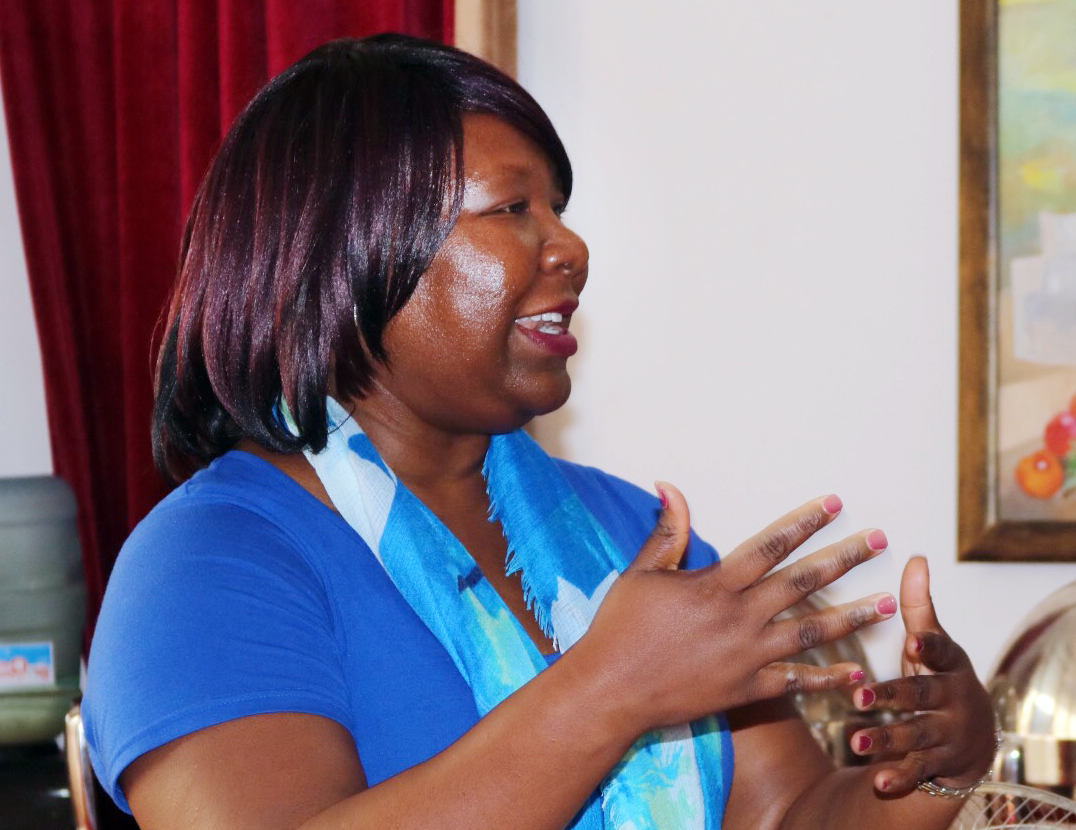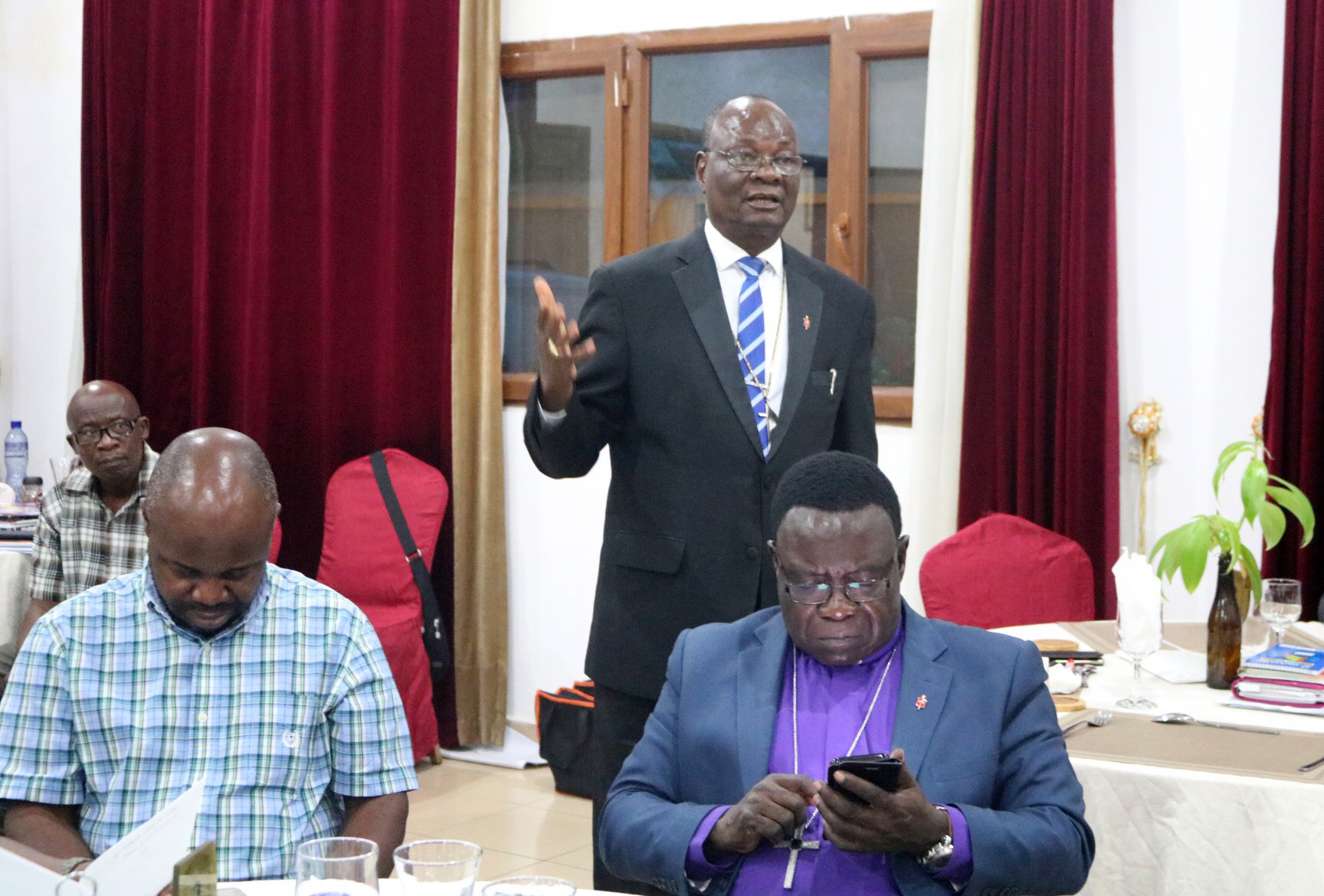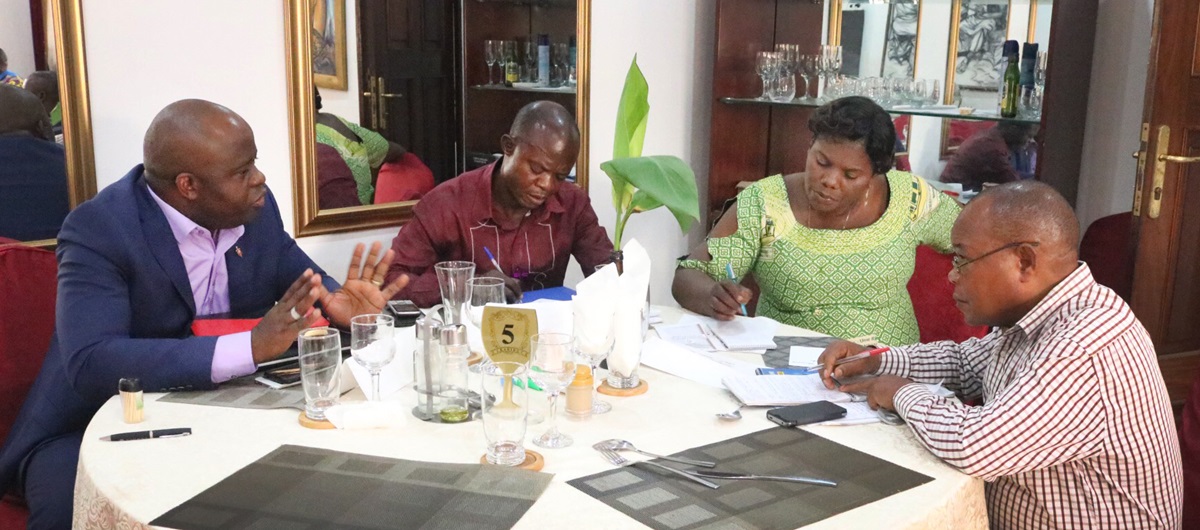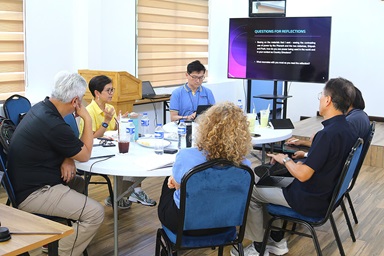Tribalism is no stranger to the Democratic Republic of the Congo, home to 80 million people and more than 300 tribes.
Simply defined, tribalism is “the state or fact of being organized in a tribe or tribes.” However, as in any social group, negative behaviors and attitudes often stem from strong loyalty to one’s tribe.
“The country is not immune to the problem of tribalism between ethnic groups and tribes,” said Sylvestre Muthoma of the Eastern Congo Conference.
“Every man is born of a family and a tribe,” he said, “but tribalism becomes an exaggerated love of his tribe, which makes it possible to consider his tribe as superior to that of others, while rejecting every opinion, every point of view, that comes from a tribe other than his own.”
Recently, Muthoma participated in a workshop on tribalism, co-sponsored by the Central Congo Conference and the United Methodist Commission on Religion and Race. Delegates and bishops from four episcopal areas — Central Congo, Eastern Congo, South Congo and North Katanga — gathered for the three-day event.
“Tribalism,” noted Erin Hawkins, top executive of Religion and Race, “is more than a reality and lived daily in the Congo Central Conference.”

Erin Hawkins, general secretary on the United Methodist Commission on Religion and Race, speaks during the workshop to eradicate tribalism. Photo by Judith Osongo Yanga, UMNS.
She identified several Scriptural passages that speak of tribalism: Galatians 3:26-28, 1 John 5:3-5, Matthew 28:19, Acts 10:11 and 34, and Ephesians 5:1-3.
The Rev. Louis Loma of the Central Congo Area, said, “Tribalism is lived in our societies and even in the church, when one tribe displays an attitude of hostility and contempt for another.”
He expressed hope that the consultation would result in “concrete proposals … to stop this scourge that brings our church and our society to hatred, division and the rejection of the person created in the image of God.”
Paul Amy Djondo of the Sankura Province described tribalism as “intolerance toward others who are not from one’s village.” He stressed the importance of “the formal prohibition of public discourse that incites hatred.”
Professor Chipeng Kayembe of the South Congo Area, said he considers tribalism a weapon of the weak — “a weapon of defense to gain confidence or employment.”
He reflected on biblical commands to love God and neighbor. Eradicating tribalism, he said, requires raising awareness at all levels of the church, accepting that no tribe is superior to another and recognizing that success in life depends on individual gifts, merits and contributions.
To transform people into disciples of Jesus Christ, he continued, “the church must be the model in deeds and words.”
The South Congo Area includes about 20 tribes and hosts tribes from areas not covered by its geographical boundaries. Kayembe noted that an Equateur Province pastor who represents a minority group was elected a delegate to the 2020 General Conference. He called the election “a successful experience of multitribal cohabitation in our episcopal area.”
“We find that the realities differ but are similar to each other,” said Honorine Mujinga of the North Katanga Area. “The ways to eradicate tribalism,” she said, “are the dialogues and the integration of all people, the … flexibility to evangelize, cultivated Christian values, humility and prayer.”
Mujinga pointed to the evangelization of the Pygmy people in Nyunzu Territory and their integration into The United Methodist Church, as well as humanitarian assistance to people displaced by Bantu and Pygmy community conflicts.
To combat racism and tribalism in the Kivu Annual Conference, a youth crusade was organized to push for increased participation of young people as church leaders. Throughout the episcopal area, young adults set a positive example by assisting people displaced by war and victims of sexual violence, regardless of their tribe or religion, and organizing evangelism campaigns.
Hawkins asked participants’ advice on eradicating tribalism in the next 10 years.
Speaking on behalf of the South Congo and Zambia annual conferences, the Rev. Izewela Sakonono Olivier, superintendent of the Lubumbashi District, advocated training selected people, integrating tribes through social and community projects, and monitoring and evaluating to develop future Religion and Race events in the conferences.
Olivier predicted church growth through evangelization and United Methodist involvement at all levels. He believes the future church can “be the true light of the world.”
Bishop Mande Muyombo, North Katanga Area, recommended education accompanied by sensitivity training, Religion and Race structures in all annual conferences, and identification of internal and external causes of tribal tension.
Professor Albert Onotamba of the Oriental and Equator Conference reminded participants of John Wesley’s vision of the world as his parish and Jesus’ words in Matthew 28:19a, NRSV, to “go therefore and make disciples of all nations.”
“Leaders of The United Methodist Church,” concluded Bishop Gabriel Yemba Unda, Eastern Congo Area, “must have the courage to vigorously denounce when a community is aggrieved, discriminated against or stigmatized.”
Looking at individual skills and expertise, he added, is more important than considering a person’s origins. He called for continued efforts to eradicate tribalism and encourage people to coexist peacefully.

Osongo Yanga is the director of communications for the East Congo Episcopal Area of The United Methodist Church.
News media contact: Vicki Brown at (615) 742-5470 or newsdesk@umcom.org. To read more United Methodist news, subscribe to the free Daily or Weekly Digests.
Like what you're reading? Support the ministry of UM News! Your support ensures the latest denominational news, dynamic stories and informative articles will continue to connect our global community. Make a tax-deductible donation at ResourceUMC.org/GiveUMCom.




